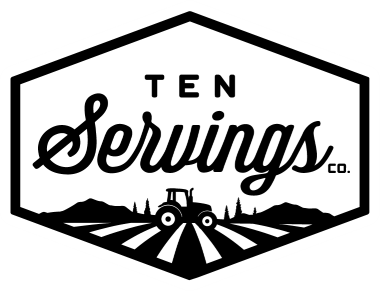Walk into any Canadian kitchen and you’ll probably find food tossed out the moment it passes its best-before date. But here’s the truth: best-before dates in Canada are about quality, not safety. This is one of the biggest drivers of food waste in Canada today, and it’s super easy to avoid!
The Scale of the Problem
Nearly 46.5% of all food produced in Canada is wasted. Of that, 41% (about $58 billion worth of food) is wasted even though it could have been eaten. **According to a recent report, best-before labels alone account for nearly 23% of avoidable waste.
This raises an important question: are best-before dates accurate? The answer depends on how you interpret them.
What Best Before Dates Really Mean
Many Canadians mistake best before labels for food expiry dates. But they’re not the same thing. According to the Canadian Food Inspection Agency, best before dates are simply about freshness, not whether the food is safe to eat.
That means food past its best-before date may not be at peak quality, but it can still be perfectly edible. Bread might be a little stale, or cereal a little less crunchy, but they’re not unsafe. Actual food expiry dates in Canada apply only to products like baby formula or meal replacements, where safety is truly a factor.
How Canadians Contribute to the Waste
Studies show that 92% of Canadians rely on best-before dates to decide if food is still edible. Even more, 4 in 10 Canadians admit to throwing away food weekly once it reaches that date. That’s thousands of households discarding food that could still have been eaten.
By learning the difference between best-before dates and food expiry dates, Canadians can make smarter choices, reduce waste, and keep edible food out of landfills.
Proof in Action: Ugly Potato Day
 Ugly Potato Day has already rescued and distributed nearly 4 million servings of food in Canada: produce and pantry staples that were close to or just past their best-before dates. Families took home everything from potatoes and tomatoes to pineapples, cherries, chocolate, and even bread. Every item was safe, eaten, and enjoyed.
Ugly Potato Day has already rescued and distributed nearly 4 million servings of food in Canada: produce and pantry staples that were close to or just past their best-before dates. Families took home everything from potatoes and tomatoes to pineapples, cherries, chocolate, and even bread. Every item was safe, eaten, and enjoyed.
This event is living proof of what experts have been saying all along: the real issue isn’t expired food, it’s wasted food. By treating best-before dates like hard food expiry dates, Canadians are discarding meals that are erfectly edible. Meanwhile, over 4 million Canadians face food insecurity each year, including 1 in 6 children. The result? Families lose money from their grocery budgets, farmers see their hard work go to waste, and the planet pays the price as food waste fuels greenhouse gas emissions and strains natural resources.
Ugly Potato Day proves that good food doesn’t have to go to waste. This year, we brought some of the Surrey magic to Kelowna, turning rescued produce into family meals and benefiting communities, the environment, and a more sustainable food system.
What You Can Do
- Trust your senses: Look, smell, taste, don’t rely only on labels.
- Know the difference: Best before dates in Canada = quality. Food expiry dates = safety.
- Support food rescue: Programs like Ugly Potato Day redirect good food to families instead of landfills.
- Spread the word: Challenge the myth that best before equals unsafe.
Join the Movement
At Ten Servings, we think it’s time to clear things up: best-before dates aren’t the same as food expiry dates. They’re really just about peak freshness, not whether your food is safe to eat. By learning the difference, Canadians can waste less, save more, and enjoy perfectly good food that might otherwise end up in the trash. Plus, it’s way better for your budget too!


